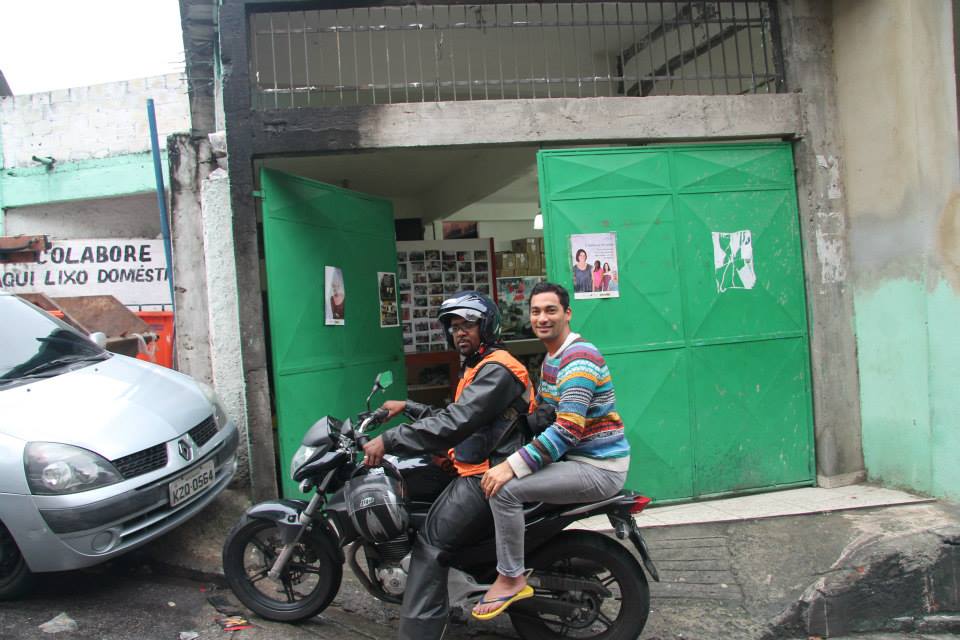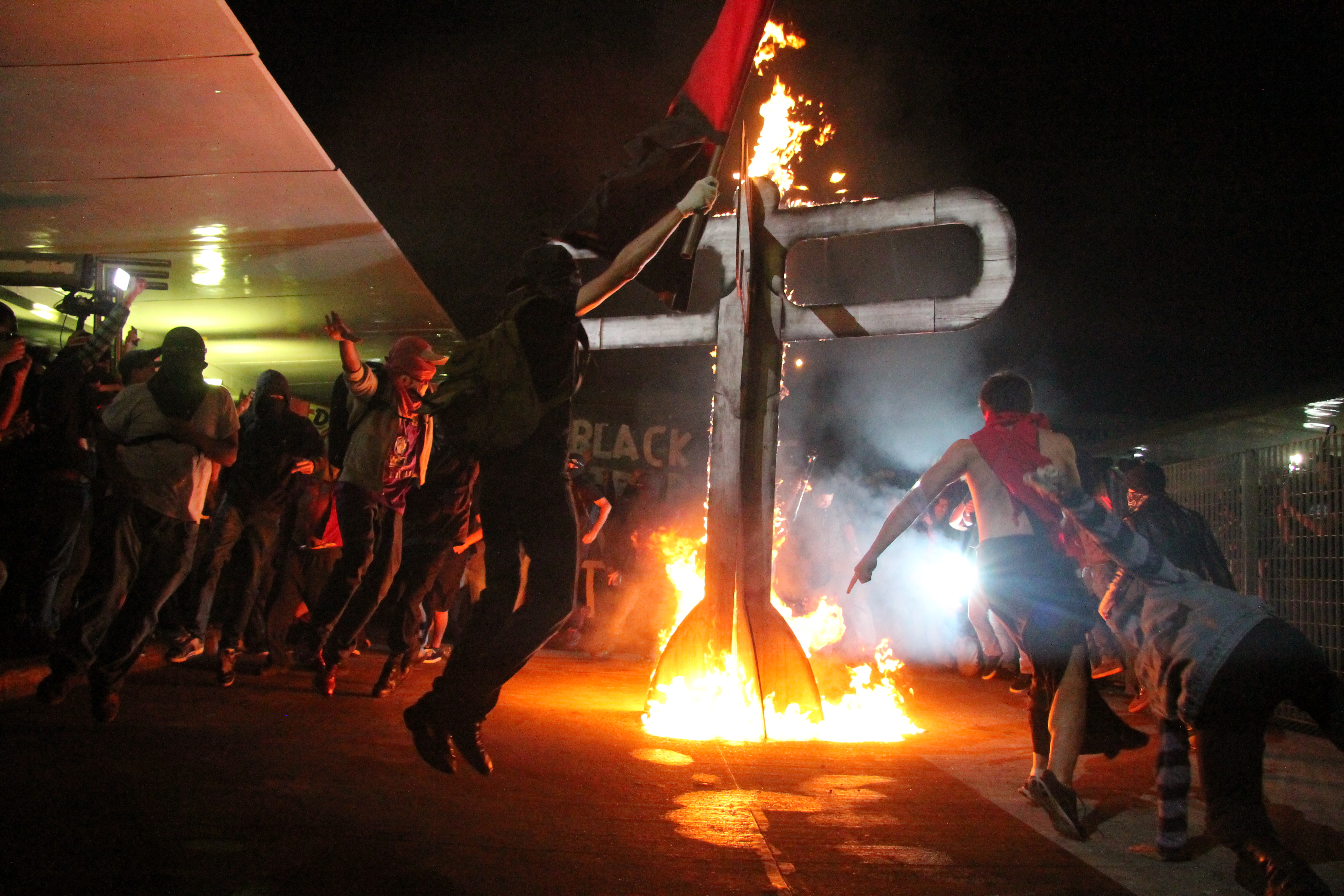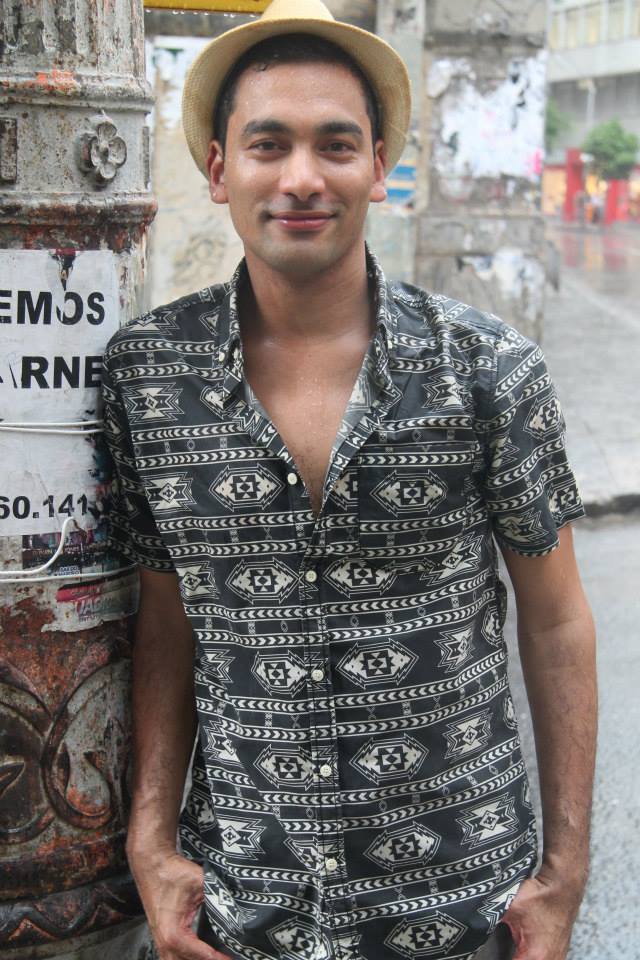By Bheki Khoza
- How involved are you with this documentary and what do you hope it achieves?
I worked on the entire project as writer, director, camera person, editor, voice over, producer… it’s a project that I self-funded. There was no other way to do it. I was traveling to Brazil for two months and the story was there in front of me. The goal is to contextualise the Soccer World Cup tournament with the realities on the ground. So while people are watching these glitzy soccer stars on TV, it would be good if they thought about who was actually on the losing side: the Brazilian who demands better housing, education and other social services instead of soccer stadiums and Fifa’s tournament.
- Give us 5 short reasons why our audience should go watch the documentary?
- Be informed about what’s happening in the world.
- I would love everybody to know what Brazilians think about the Soccer World Cup.
- Watch the film and feel inspired by particularly the young and politicised Brazilians who have taken to the streets to demand a better future from their government that is misspending taxpayer’s cash. What’s new?
- I like this film and think you should watch it.
- You will enjoy it.
- How relevant are the conversations in the documentary to the ones South Africans had during the 2010 World Cup?
Very relevant. When a South African watches this film they will see how the situation in our two countries is exactly the same. We face very similar conditions of poverty and unemployment. We are in the Global South, the developing world, and yet our governments see it fit to get us in debt to host these ridiculous events instead of investing money into our social infrastructure and improving life for locals.
- What are the 5 lessons we can learn from the documentary of such calibre?
This depends on the viewer. I can talk about my experience and what I had learned. This is that everywhere in the world there is injustice and there are people willing to stand up against it. You will meet these people in this film.
- How easy would you say was to produce such a documentary in Brazil?
It wasn’t always easy but not the most difficult thing in the world. The most difficult part was the language barrier. I don’t speak Portuguese and worked with translators. I managed to travel through various parts of the country and went to protests, sometimes placing myself at risk. In the end, it’s worth it.
- What method of production was implemented in the making of the documentary?
I used a digital camera.
- And, will you be going to Brazil for the World Cup 2014?
I really want to go, but that depends on whether I have the cash or external funding to do so. I think Brazil will be a crazy place then and I want to be there to document it all.
These are the dates:
May 8: The Bioscope, Ground Floor of Main Street Life, Maboneng Precinct. Starts 8pm. R40 a ticket. Buy tickets here https://tickets.tixsa.co.
May 9: Fananathi Print Studio at the Drill Hall, corner Twist and Claim street, right next to the MTN Noord Taxi Rank. Starts6pm. Just come and meet us.
May 12: IT Corner, Corner 7th Street and 4th Avenue, Melville, JHB. Starts 7pm. Pay what you can. Tel: 011-482-6090.
May 13: Lighthouse on 7th, Seventh Street, Melville, JHB. Starts 7pm. Pay what you can.




